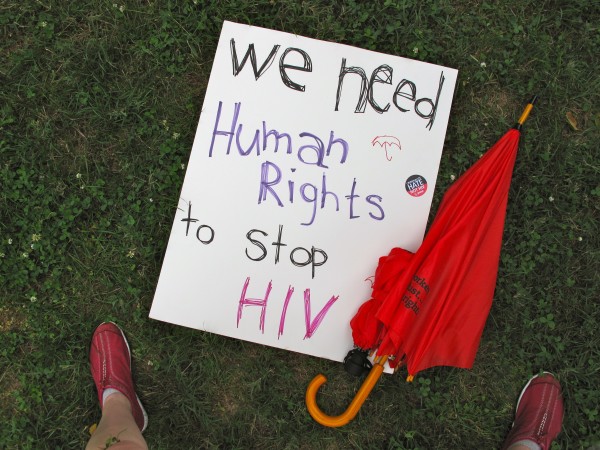During the first Universal Periodic Review of the United States in 2010, the Human Rights Council at the United Nations made Recommendation 86 to the United States to “…ensure access to public services paying attention to the special vulnerability of sexual workers to violence and human rights abuses.” The Obama Administration accepted the recommendation stating, “we agree that no one should face violence or discrimination in access to public services based on sexual orientation or their status as a person in prostitution…” This position was repeated earlier this year in preparations for the 2015 Universal Periodic Review (UPR) of the United States. However, now that the United States has made no mention of sex workers rights in its official response to the 2015 UPR, sex worker advocates are frustrated that there is no sign that Recommendation 86 will actually be implemented. Our concern is that the United States is failing to ensure that the human rights of sex workers are protected and that the systematic violations of sex workers–and people profiled as such–that have been documented by our organizations continue with impunity.
While other recommendations are followed up with plans of action, the U.S. government has failed to make any plans on actually implementing Recommendation 86 and ensuring sex workers have access to public services to ensure safety.
Unfortunately, sex workers continue to experience violence and extreme forms of discrimination from state actors across the country. In May of 2013, Monica Jones, a transgender woman of color in Phoenix, was arrested for “manifestation of prostitution” while on her way to a LGBT venue. These kinds of arrest are a common practice in which law enforcement profiles trans feminine people of color as sex workers. In late 2014, the North Jersey Regional Director of the New Jersey Red Umbrella Alliance was unconstitutionally arrested in relation to her prior prostitution charge with claims of an active warrant which were later discovered to be false. These actions were likely taken in retaliation for her efforts to speak out against police violence. In Alaska, anti-trafficking rhetoric has become so radioactive that Amber Batts was found guilty of trafficking herself. This is the reality that sex workers and people profiled as such have to endure.
The continuing human rights violations that sex workers experience are a direct result of the inaction the United States government has taken to address our concerns. The federal government has the capacity to set restrictions on human trafficking funding so they go to people who actually have been coerced in their labor, and not into the hands of law enforcement efforts that are incompatible with addressing these issues or towards forcing people out of the sex trade who do not want to leave. The federal government can end travel restrictions on those who trade sex that are often enforced in ways that reinforce racial stereotypes. Importantly, the federal government has the ability to formally recognize the labor of sex work and allow labor violations to be reported.
If the government is serious about enforcing Recommendation 86, then the sex worker community requires a plan of action, as current policies run contrary to their rhetoric that sex workers should not be discriminated against. This plan should incorporate ways to work with state and local governments to reverse the trend of using laws against prostitution, solicitation, and loitering to harass sex workers and those perceived to be sex workers. Sex workers want the talk about rights to result in meaningful action.
By Derek Demeri, New Jersey Red Umbrella Alliance; Penelope Saunders, Best Practices Policy Project; and Cristine Sardina, Desiree Alliance.

